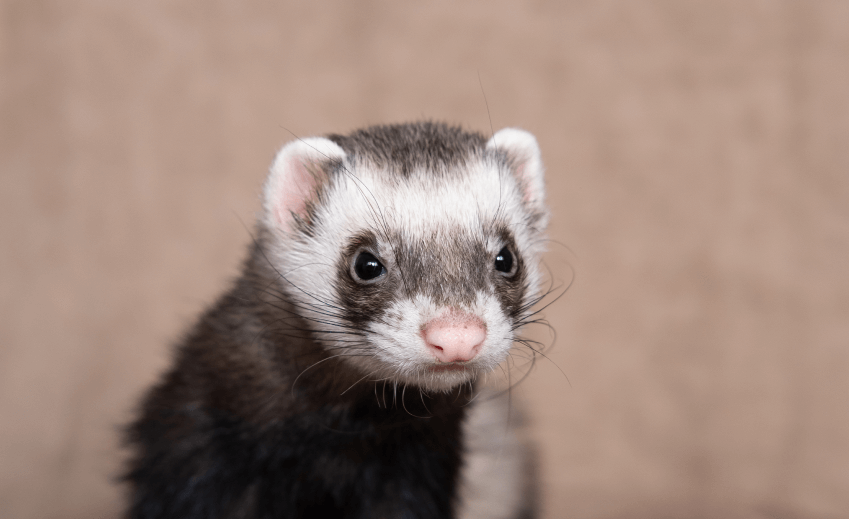Understanding and Managing Aggression in Pet Ferrets: Tips for a Happier, Calmer Companion
Ferrets are playful, energetic, and often misunderstood pets. While most ferrets are curious and affectionate, they can sometimes exhibit aggressive behaviors that may be concerning, especially for first-time ferret owners. But don’t worry! Ferret aggression is something you can comprehend and manage with the right approach. In this guide, we’ll delve into the common causes of ferret aggression, the signs to watch for, and, most importantly, how to address it to ensure both you and your ferret can enjoy a peaceful and happy life together.
1. Why Do Ferrets Show Aggression?
Ferrets, like many other animals, can display aggressive behaviors for various reasons. Understanding why your ferret is acting out is the first step in managing the behavior. Here are some common reasons behind ferret aggression:
Fear
Ferrets may lash out when they feel scared or threatened. This can occur if they’ve had a negative experience in the past, if they’re not accustomed to being handled, or if something in their environment is causing anxiety. Even the most sociable ferret might become aggressive if they feel cornered or unsafe.
Territorial Behavior
Ferrets can be quite territorial, particularly regarding their food, toys, or sleeping areas. They might nip or bite if they feel their space is being invaded or if another ferret is attempting to take something they consider “theirs.”
Pain or Illness
Sometimes, aggression can indicate that your ferret is in pain or unwell. Ferrets can’t communicate when they’re hurt, so they might show aggression when touched in a way that causes discomfort. If your usually gentle ferret suddenly becomes aggressive, it’s wise to visit the vet to rule out any underlying health issues.
Hormonal Changes
Unspayed or unneutered ferrets, especially males, can exhibit increased aggression due to hormonal fluctuations. This behavior is particularly noticeable during mating season. Neutering or spaying your ferret can greatly help in reducing these aggressive tendencies.
Play Aggression
Ferrets are naturally playful, and what may appear as aggression is often just a ferret being overly excited. Play aggression, such as biting during play, can be managed but should not be mistaken for genuine aggressive behavior.
2. Signs of Aggression in Ferrets
Understanding the distinction between normal playful behavior and actual aggression is crucial. Here are some common indicators that your ferret may be displaying aggression:
- Biting: While nipping can be playful for ferrets, aggressive biting is much more forceful and can break the skin.
- Hissing or Screeching: These sounds are clear indicators that your ferret is feeling threatened or upset.
- Puffing Up: A ferret that feels threatened may puff up its tail or arch its back to seem larger and more intimidating.
- Lunging: If your ferret lunges at you or another animal, it typically signals aggression.
- Hiding or Avoiding Contact: An aggressive or scared ferret may hide or flee when you approach, especially if they have learned to associate people with negative experiences.
3. Managing Aggression in Ferrets
Now that we understand the reasons behind ferret aggression, let’s explore some effective strategies to manage and reduce this behavior.
Building Trust Through Positive Reinforcement
If your ferret’s aggression is due to fear or insufficient socialization, it’s crucial to build trust gradually. Positive reinforcement can help your ferret see that interacting with you is a positive experience. Here’s how to do it:
- Offer Treats: Hand-feeding treats can help your ferret associate you with good experiences. Use their favorite treats and offer them only when they are calm and behaving appropriately.
- Gentle Handling: Begin by gently petting your ferret while giving treats, then slowly progress to picking them up for brief periods. Always handle them with care and be patient.
- Frequent, Short Sessions: Instead of long, overwhelming handling sessions, opt for short, frequent interactions. This approach will help your ferret feel more comfortable with you over time.
Redirecting Aggressive Play
Ferrets are energetic creatures that enjoy playtime, but their play can sometimes become too rough. Here are some tips to manage aggressive play:
- Use Toys: To prevent your ferret from nipping or biting your hands, always have toys available to redirect their biting behavior. Ferrets love to chase and tug, so providing a toy for them to bite instead of your fingers is an effective way to manage play aggression.
- Stop Play If It Gets Too Rough: If your ferret bites too hard or becomes overly excited, stop the play immediately. Make it clear that rough play is not acceptable. After a brief break, you can resume playing in a gentler manner.
- Teach Bite Inhibition: When your ferret bites too hard, let out a loud “ouch” or yelp, mimicking how another ferret would react to a painful bite. This teaches your ferret that biting can hurt and encourages them to be gentler.
Addressing Territorial Aggression
If your ferret is displaying territorial aggression, it’s crucial to provide them with a sense of security while establishing clear boundaries.
- Separate Feeding Areas: For households with multiple ferrets, ensure that each one has its own designated feeding area to avoid food-related aggression.
- Respect Their Space: If your ferret becomes aggressive when you attempt to take toys or disturb their sleeping area, it’s important to respect their space. Only interact with them when they appear relaxed and comfortable.
- Rotate Toys: To minimize territorial behavior over specific toys, make a habit of rotating them regularly. This practice helps lessen attachment to any single item.
Consult Your Vet for Hormonal Aggression
If your ferret’s aggression seems linked to hormonal changes, such as during mating season, it may be wise to consider spaying or neutering. This not only can help reduce aggressive tendencies but also aids in preventing other health issues down the line. Discuss the best options for your ferret with your vet.
4. When to Seek Help
Sometimes, despite your best efforts, a ferret's aggression may continue. If you’ve tried various strategies and your ferret is still exhibiting aggressive behavior, it might be time to seek professional assistance. Here are a few options:
- Veterinary Visit: Check for any medical issues that could be causing pain or discomfort.
- Animal Behaviorist: A qualified behaviorist can evaluate your ferret’s behavior and offer tailored advice and training techniques.
- Ferret Rescue Groups: Many ferret rescues and shelters have knowledgeable staff who can provide guidance on managing challenging behaviors.
5. Wrapping It Up: Patience is Key
Understanding and managing ferret aggression requires time, patience, and consistency. It’s essential to remember that no ferret is aggressive without cause, and with some effort, most behavioral issues can be addressed. By fostering trust, employing positive reinforcement, and recognizing what triggers your ferret’s aggression, you can cultivate a peaceful and loving environment for both you and your furry companion.
Every ferret has its own personality, so don’t get discouraged if things take time. With the right methods, your ferret will understand that there's no reason to be aggressive and that their home is a safe and enjoyable environment!
